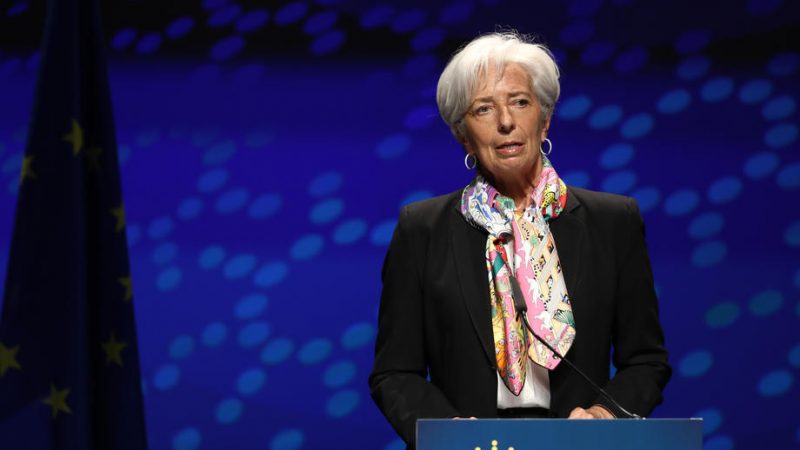European Central Bank (ECB) presidency Christine Lagarde called on Wednesday (June 30) for the launch of initiatives to create a capital markets union for sustainable finance.
At the Brussels Economic Forum (BEF), Ms Lagarde expressed her concerns about the ability of private investors to help mobilize funds to stimulate green and ecological transitions.
In order to abolish national barriers that restrict investments, the head of the ECB called for progress to start a “union of” green “capital markets”.
In 2015, the European Commission outlined a series of proposals to simplify cross-border financial market activities within the EU. After years of fruitless progress, Brussels finally presented an action plan in 2020 to reinvigorate the efforts made.
“As we saw a few years ago, and as – I’m sure – we will see in the future, it takes time” to shape a Capital Markets Union, not least because these markets were developed nationally, she explained.
Ms Lagarde argued that it was possible to make “rapid progress” in developing a “green” capital markets union, since financial instruments such as green bonds have already entered the market. European scale.
The bloc is at the head of the green bond market, which represented around 60% of global issuance in 2020. In addition, the euro is now the primary currency used for “green” finance: half of all green bonds at globally were issued in euros.
The President of the ECB indicated that the capital markets were better suited than banks to finance future-oriented sectors, in particular ecology and digital technology, partly because of the direct link they offer to finance well-defined projects.
Therefore, Christine Lagarde argues that some initiatives under the action plan of the Capital Markets Union “should be accelerated, even if they only apply to sustainable finance for the moment”, given that they could set the standards for a broader Capital Markets Union down the road.
In her list of priorities, the French senior official mentioned the establishment of an ad hoc European control of sealed green financial products from the EU, in particular the EU standard on green bonds that the Commission European will present next week. As a reminder, this is a facilitating framework for the European Union aimed at increasing public and private investments in environmentally sustainable economic activities based on the European taxonomy of sustainability.
She added that the bloc should harmonize the fiscal management of sustainable financial products to prevent national fragmentation. Likewise, convergence in national insolvency frameworks should be strengthened, and in particular to make possible specific procedures for “green” finance.
“Some of you might be skeptical, but it’s worth a try. Because if the results are successful, our efforts will not only accelerate the transformation of our economy, but they will also act as a motor for capital markets in general, “she said.
For his part, Green MEP Ernest Urtasun spoke in favor of prioritizing “green” initiatives under the Capital Markets Union package, although “there is still a long way to go”.
Speaking to reporters, Urtasun added that some ideas proposed would not be supported by MEPs, including the possibility of reducing the capital requirement for “green” investments.

